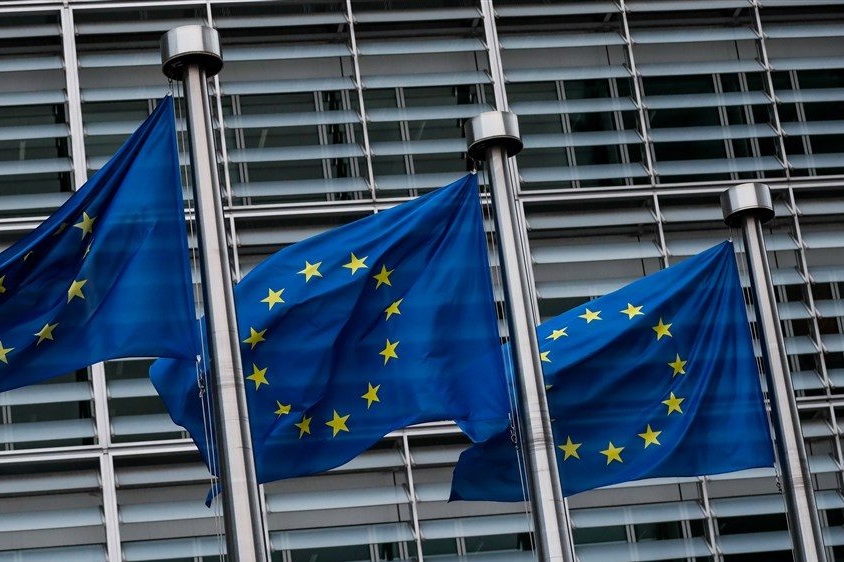11 Dec 2024

Tired Earth
By The Editorial Board

The European Commission, the European Parliament, and the Council of the EU have been trying to reduce their environmental footprint for years – but the past year’s energy crisis has driven them to introduce new measures to cut demand quickly, the three institutions told EURACTIV.
“In the light of recent energy price increases linked to the ongoing Russian invasion in Ukraine, energy savings and energy independence have become even more important and pressing,” the Parliament’s press service said.
Meanwhile, the Council of the EU, which represents the bloc’s 27 member states, has reduced the heating of its offices to 19°C, the Justus Lipsius building’s atrium to 16°C and the Europa building’s forum to 14°C. During the summer, the temperature to trigger the air conditioning will be increased to 27°C.
In the Council, these measures are coordinated by the General Secretariat of the Council (GSC), an administrative support body.
“The GSC is eager to play its part too. Modifying the climate-control temperatures in its buildings in both winter and summer is one step taken by the Council to reduce energy consumption,” the Council says on its website.
Since mid-2021, the European Commission has also rolled out new measures, including reducing the heating temperature of its buildings by 2°C in winter and increasing the cooling temperature by 2°C to 25°C.
The energy crisis has focused minds on moving faster, said Ciarán Cuffe, a Green MEP.
“All across Europe, households have faced higher energy prices and they realise the importance of both renovations and also energy efficiency measures, such as heating controls,” the Irish Green MEP told EURACTIV.
Cuffe is in charge of negotiating the European Parliament’s position on a new law to drive energy savings in buildings, which are currently responsible for 40% of EU energy consumption and 36% of carbon emissions.
According to Cuffe, EU institutions can and should be leaders in the move to high energy performance buildings.
“There’s a real opportunity with larger buildings. By their very nature, they can be more energy efficient,” he said.
“But it will absolutely depend on the climate zone the building is in and the neighbourhood,” he added, pointing to Parliament buildings in Strasbourg, which tap into geothermal energy resources, while ones in Brussels use green contacts.
Efficient homes for policymaking
All three institutions told EURACTIV they are moving towards more climate-friendly, energy-efficient buildings with measures including renovation, optimising usage and more renewables.
Between 2015 and 2021, the Commission’s total energy consumption in Brussels and Luxembourg dropped 20% thanks to decreased demand, improved use of office space and better energy performance, a spokesperson told EURACTIV.
However, if the Commission is to meet its goal of climate neutrality by 2030, it needs “a whole new level of action”, the EU executive admits.
In 2019, its buildings and workspaces represented 43% of its emissions, making them a key area to address. Before 2030, it aims to reduce building emissions by 30%, with measures including a reduction in the number of buildings occupied, relocation, renovation and new builds.
“The Commission has a key role to play. It is determined to set a good example in the transition towards a climate neutral society,” the EU executive said.
Meanwhile, the average energy performance of Council sites has improved by just under 30% between 2010 and 2021, although this is partly due to lower use during the COVID lockdowns. The Council’s latest environmental policy, adopted in 2019, aims to cut primary energy consumption through more renewables and efficiency measures.
Turning to the European Parliament, the institution has reduced its gas and electricity consumption by around 25% since 2012 and its emissions by 59.7% since 2006, its spokespeople said.
The Parliament has already carried out renovations, reconstructions and replacements to improve environmental performance. The buildings in Brussels and Strasbourg currently range from B- to F on the energy efficiency scale, with one in the highest category and 14 rated D or below.
To assess what further work is needed, the Parliament launched a technical assessment of its buildings in December 2022, which is expected to be completed in the summer.
Powering policymaking
Since 2008, the Parliament has only purchased ‘green’ electricity, the institution’s press service told EURACTIV. Solar and heat pumps are already in use in some buildings, with more photovoltaics planned in 2023.
“Some of the buildings here in Brussels, the Spinelli building and the JAN building, already have rooftop solar, solar PV, but I think we should use the experience from that to do a much larger rollout, certainly across our buildings here in Brussels, but also down in Strasburg and in Luxembourg,” said Cuffe.
The Council also uses solar energy, although most of its heating comes from gas, which is used to generate both heat and electricity.
Meanwhile, the European Commission has around 100 heat pumps installed and four buildings with a total of 340 metres squared of solar panels. It is also installing solar PV on the Berlaymont building, which should be operational this summer and provide 169 megawatt hours (MWh) of electricity annually.
“We are currently examining the opportunity of increasing the number of buildings equipped with solar panels and we will launch studies accordingly,” the Commission told EURACTIV.
“The plan for the next five years is to install solar panels on Commission buildings wherever technically feasible in line with the action plan on greening,” it added.
Source : euractiv.com
Comment